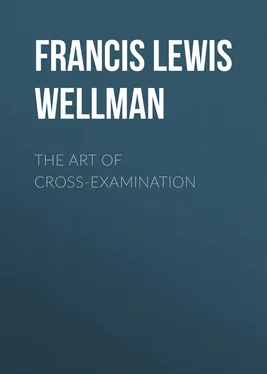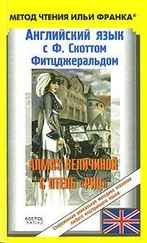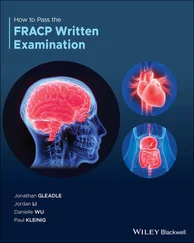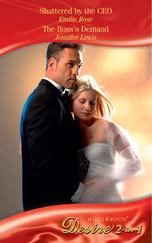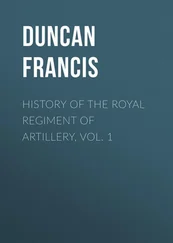Francis Lewis Wellman - The Art of Cross-Examination
Здесь есть возможность читать онлайн «Francis Lewis Wellman - The Art of Cross-Examination» — ознакомительный отрывок электронной книги совершенно бесплатно, а после прочтения отрывка купить полную версию. В некоторых случаях можно слушать аудио, скачать через торрент в формате fb2 и присутствует краткое содержание. Жанр: foreign_edu, Юриспруденция, на английском языке. Описание произведения, (предисловие) а так же отзывы посетителей доступны на портале библиотеки ЛибКат.
- Название:The Art of Cross-Examination
- Автор:
- Жанр:
- Год:неизвестен
- ISBN:нет данных
- Рейтинг книги:3 / 5. Голосов: 1
-
Избранное:Добавить в избранное
- Отзывы:
-
Ваша оценка:
- 60
- 1
- 2
- 3
- 4
- 5
The Art of Cross-Examination: краткое содержание, описание и аннотация
Предлагаем к чтению аннотацию, описание, краткое содержание или предисловие (зависит от того, что написал сам автор книги «The Art of Cross-Examination»). Если вы не нашли необходимую информацию о книге — напишите в комментариях, мы постараемся отыскать её.
The Art of Cross-Examination — читать онлайн ознакомительный отрывок
Ниже представлен текст книги, разбитый по страницам. Система сохранения места последней прочитанной страницы, позволяет с удобством читать онлайн бесплатно книгу «The Art of Cross-Examination», без необходимости каждый раз заново искать на чём Вы остановились. Поставьте закладку, и сможете в любой момент перейти на страницу, на которой закончили чтение.
Интервал:
Закладка:
An amusing account is given in the Green Bag for November, 1891, of one of Jeremiah Mason's cross-examinations of such a witness. "The witness had previously testified to having heard Mason's client make a certain statement, and it was upon the evidence of that statement that the adversary's case was based. Mr. Mason led the witness round to his statement, and again it was repeated verbatim. Then, without warning, he walked to the stand, and pointing straight at the witness said, in his high, impassioned voice, 'Let's see that paper you've got in your waistcoat pocket!' Taken completely by surprise, the witness mechanically drew a paper from the pocket indicated, and handed it to Mr. Mason. The lawyer slowly read the exact words of the witness in regard to the statement, and called attention to the fact that they were in the handwriting of the lawyer on the other side.
"'Mr. Mason, how under the sun did you know that paper was there?' asked a brother lawyer. 'Well,' replied Mr. Mason, 'I thought he gave that part of his testimony just as if he'd heard it, and I noticed every time he repeated it he put his hand to his waistcoat pocket, and then let it fall again when he got through.'"
Daniel Webster considered Mason the greatest lawyer that ever practised at the New England Bar. He said of him, "I would rather, after my own experience, meet all the lawyers I have ever known combined in a case, than to meet him alone and single-handed." Mason was always reputed to have possessed to a marked degree "the instinct for the weak point" in the witness he was cross-examining.
If perjured testimony in our courts were confined to the ignorant classes, the work of cross-examining them would be a comparatively simple matter, but unfortunately for the cause of truth and justice this is far from the case. Perjury is decidedly on the increase, and at the present time scarcely a trial is conducted in which it does not appear in a more or less flagrant form. Nothing in the trial of a cause is so difficult as to expose the perjury of a witness whose intelligence enables him to hide his lack of scruple. There are various methods of attempting it, but no uniform rule can be laid down as to the proper manner to be displayed toward such a witness. It all depends upon the individual character you have to unmask. In a large majority of cases the chance of success will be greatly increased by not allowing the witness to see that you suspect him, before you have led him to commit himself as to various matters with which you have reason to believe you can confront him later on.
Two famous cross-examiners at the Irish Bar were Sergeant Sullivan, afterwards Master of the Rolls in Ireland, and Sergeant Armstrong. Barry O'Brien, in his "Life of Lord Russell," describes their methods. "Sullivan," he says, "approached the witness quite in a friendly way, seemed to be an impartial inquirer seeking information, looked surprised at what the witness said, appeared even grateful for the additional light thrown on the case. 'Ah, indeed! Well, as you have said so much, perhaps you can help us a little further. Well, really, my Lord, this is a very intelligent man.' So playing the witness with caution and skill, drawing him stealthily on, keeping him completely in the dark about the real point of attack, the 'little sergeant' waited until the man was in the meshes, and then flew at him and shook him as a terrier would a rat.
"The 'big Sergeant' (Armstrong) had more humor and more power, but less dexterity and resource. His great weapon was ridicule. He laughed at the witness and made everybody else laugh. The witness got confused and lost his temper, and then Armstrong pounded him like a champion in the ring."
In some cases it is wise to confine yourself to one or two salient points on which you feel confident you can get the witness to contradict himself out of his own mouth. It is seldom useful to press him on matters with which he is familiar. It is the safer course to question him on circumstances connected with his story, but to which he has not already testified and for which he would not be likely to prepare himself.
A simple but instructive example of cross-examination, conducted along these lines, is quoted from Judge J. W. Donovan's "Tact in Court." It is doubly interesting in that it occurred in Abraham Lincoln's first defence at a murder trial.
"Grayson was charged with shooting Lockwood at a camp-meeting, on the evening of August 9, 18—, and with running away from the scene of the killing, which was witnessed by Sovine. The proof was so strong that, even with an excellent previous character, Grayson came very near being lynched on two occasions soon after his indictment for murder.
"The mother of the accused, after failing to secure older counsel, finally engaged young Abraham Lincoln, as he was then called, and the trial came on to an early hearing. No objection was made to the jury, and no cross-examination of witnesses, save the last and only important one, who swore that he knew the parties, saw the shot fired by Grayson, saw him run away, and picked up the deceased, who died instantly.
"The evidence of guilt and identity was morally certain. The attendance was large, the interest intense. Grayson's mother began to wonder why 'Abraham remained silent so long and why he didn't do something!' The people finally rested. The tall lawyer (Lincoln) stood up and eyed the strong witness in silence, without books or notes, and slowly began his defence by these questions:
" Lincoln. 'And you were with Lockwood just before and saw the shooting?'
" Witness. 'Yes.'
" Lincoln. 'And you stood very near to them?'
" Witness. 'No, about twenty feet away.'
" Lincoln. 'May it not have been ten feet?'
" Witness. 'No, it was twenty feet or more .'
" Lincoln. 'In the open field?'
" Witness. 'No, in the timber.'
" Lincoln. 'What kind of timber?'
" Witness. 'Beech timber.'
" Lincoln. 'Leaves on it are rather thick in August?'
" Witness. 'Rather.'
" Lincoln. 'And you think this pistol was the one used?'
" Witness. 'It looks like it.'
" Lincoln. 'You could see defendant shoot—see how the barrel hung, and all about it?'
" Witness. 'Yes.'
" Lincoln. 'How near was this to the meeting place?'
" Witness. 'Three-quarters of a mile away.'
" Lincoln. 'Where were the lights?'
" Witness. 'Up by the minister's stand.'
" Lincoln. 'Three-quarters of a mile away?'
" Witness. 'Yes,—I answered ye twiste .'
" Lincoln. 'Did you not see a candle there, with Lockwood or Grayson?'
" Witness. 'No! what would we want a candle for?'
" Lincoln. 'How, then, did you see the shooting?'
" Witness. 'By moonlight!' (defiantly).
" Lincoln. 'You saw this shooting at ten at night—in beech timber, three-quarters of a mile from the lights—saw the pistol barrel—saw the man fire—saw it twenty feet away—saw it all by moonlight? Saw it nearly a mile from the camp lights?'
" Witness. 'Yes, I told you so before.'
"The interest was now so intense that men leaned forward to catch the smallest syllable. Then the lawyer drew out a blue-covered almanac from his side coat pocket—opened it slowly—offered it in evidence—showed it to the jury and the court—read from a page with careful deliberation that the moon on that night was unseen and only arose at one the next morning.
"Following this climax Mr. Lincoln moved the arrest of the perjured witness as the real murderer, saying: 'Nothing but a motive to clear himself could have induced him to swear away so falsely the life of one who never did him harm!' With such determined emphasis did Lincoln present his showing that the court ordered Sovine arrested, and under the strain of excitement he broke down and confessed to being the one who fired the fatal shot himself, but denied it was intentional."
Читать дальшеИнтервал:
Закладка:
Похожие книги на «The Art of Cross-Examination»
Представляем Вашему вниманию похожие книги на «The Art of Cross-Examination» списком для выбора. Мы отобрали схожую по названию и смыслу литературу в надежде предоставить читателям больше вариантов отыскать новые, интересные, ещё непрочитанные произведения.
Обсуждение, отзывы о книге «The Art of Cross-Examination» и просто собственные мнения читателей. Оставьте ваши комментарии, напишите, что Вы думаете о произведении, его смысле или главных героях. Укажите что конкретно понравилось, а что нет, и почему Вы так считаете.
